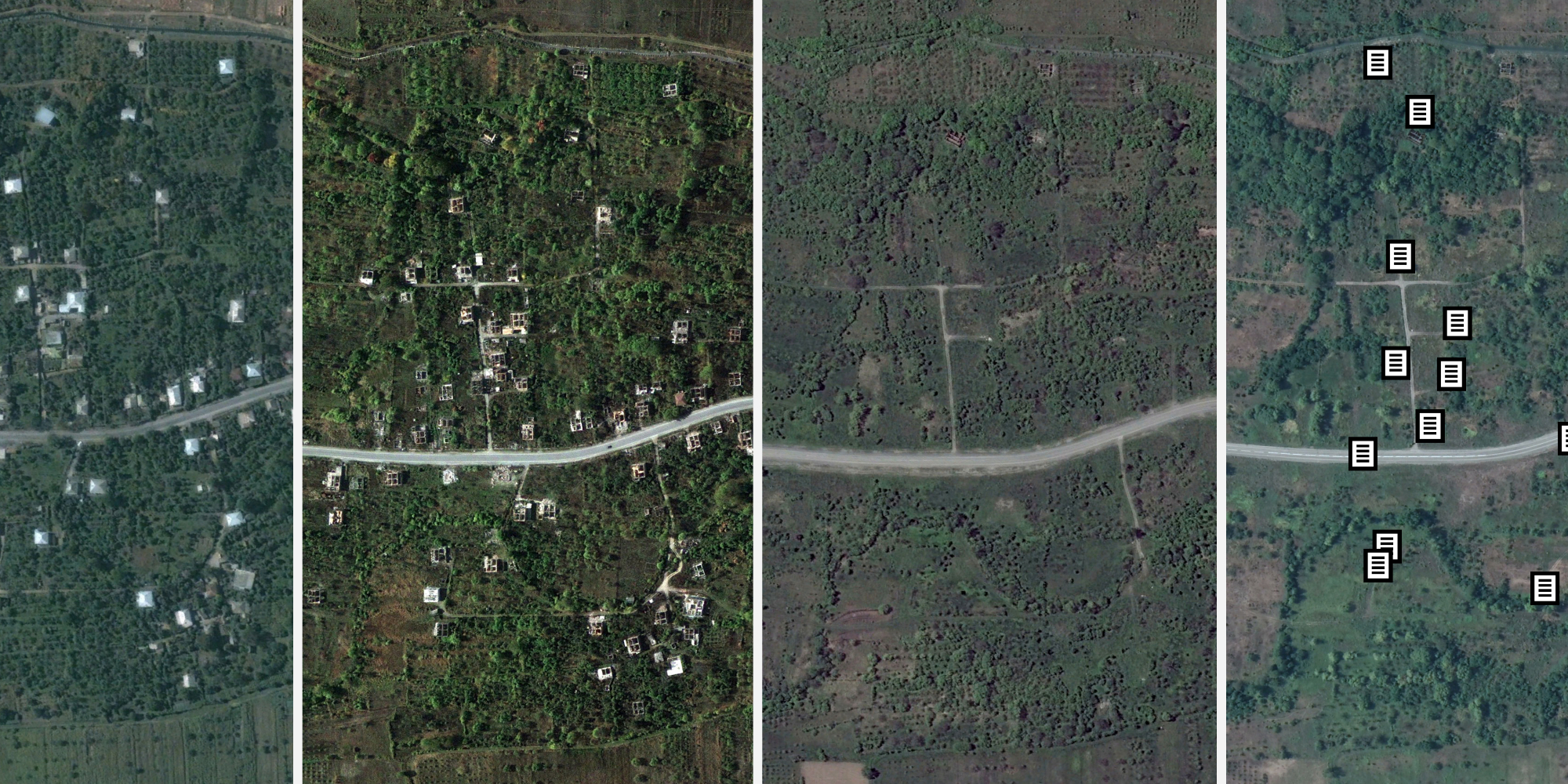by Laura Welzenbach
Irakli Sabekia, the 2022 Artist in Resident of the ArtScience Program enabled by the Art Collection Deutsche Telekom, is currently working on a digital online tool, platform and an app, that will allow us to confront unbalanced realities. The Archive of Spatial Knowledge is an experimental digital platform. It gathers spatial and social memory of individuals who were forcefully displaced or are denied spatial rights in the locations of their current residence. The archive’s digital tool allows its contributors to attach their memories to physical locations in a virtual layer. While at the same time viewers can use the platform to access the erased knowledge on location, juxtaposing invisible stories and the reality of physical spaces. The archive’s first edition addresses the issues of spatial justice in and around the Russian-occupied regions of Georgia.
Laura Welzenbach, Head of Ars Electronica Export, met Irakli Sabekia for an interview to talk about the status quo of his project and his research trip to Georgia. Find out more about Irakli’s artistic practice in this video before diving into the interview.
Laura Welzenbach: Irakli, thank you very much for taking the time for this interview. First, would you like to share what your very personal take on the Archive of Spatial Knowledge is? Why is it important to you?
Irakli Sabekia: In my work I often explore events that are somehow unbalanced, things that I find hard to accept or reconcile with. The outcomes of my projects are the tools I create to confront and engage these realities. The Archive of Spatial Knowledge is an attempt to push back on the forces of spatial hegemony. The work has its roots in the occupied territories of Georgia, but is looking outward to other places in the world where space is subdued and manipulated to enforce fabricated narratives and suppress or erase everything else.
Laura Welzenbach:In the framework of the residency, you travel to different places for your research. Currently you are in Georgia. What was your goal for this research trip?
Irakli Sabekia: Field work has been a big part of the effort in this project from the beginning and is important in my practice in general. In this case, I am meeting the potential contributors of the archive and introducing them to the project. If there is mutual interest, we move forward and schedule interviews and follow-up meetings either in person or remotely. Beyond collecting the material, this process helped me to form the structure of the archive itself.
Laura Welzenbach: We know that the stories you collect for this project, are very personal and potentially also painful. Navigating through this might be challenging? What was the unexpected when collecting the stories?
Irakli Sabekia: The unexpected is in the stories themselves. This is also the reason I meet the contributors personally. I was surprised to find young people who are invested in rethinking the inherited trauma and are willing to step outside the narrative and physical boundaries set up by all parties involved in these conflicts. Such encounters help me reconsider my own views on these issues. This is very valuable to me in this project.
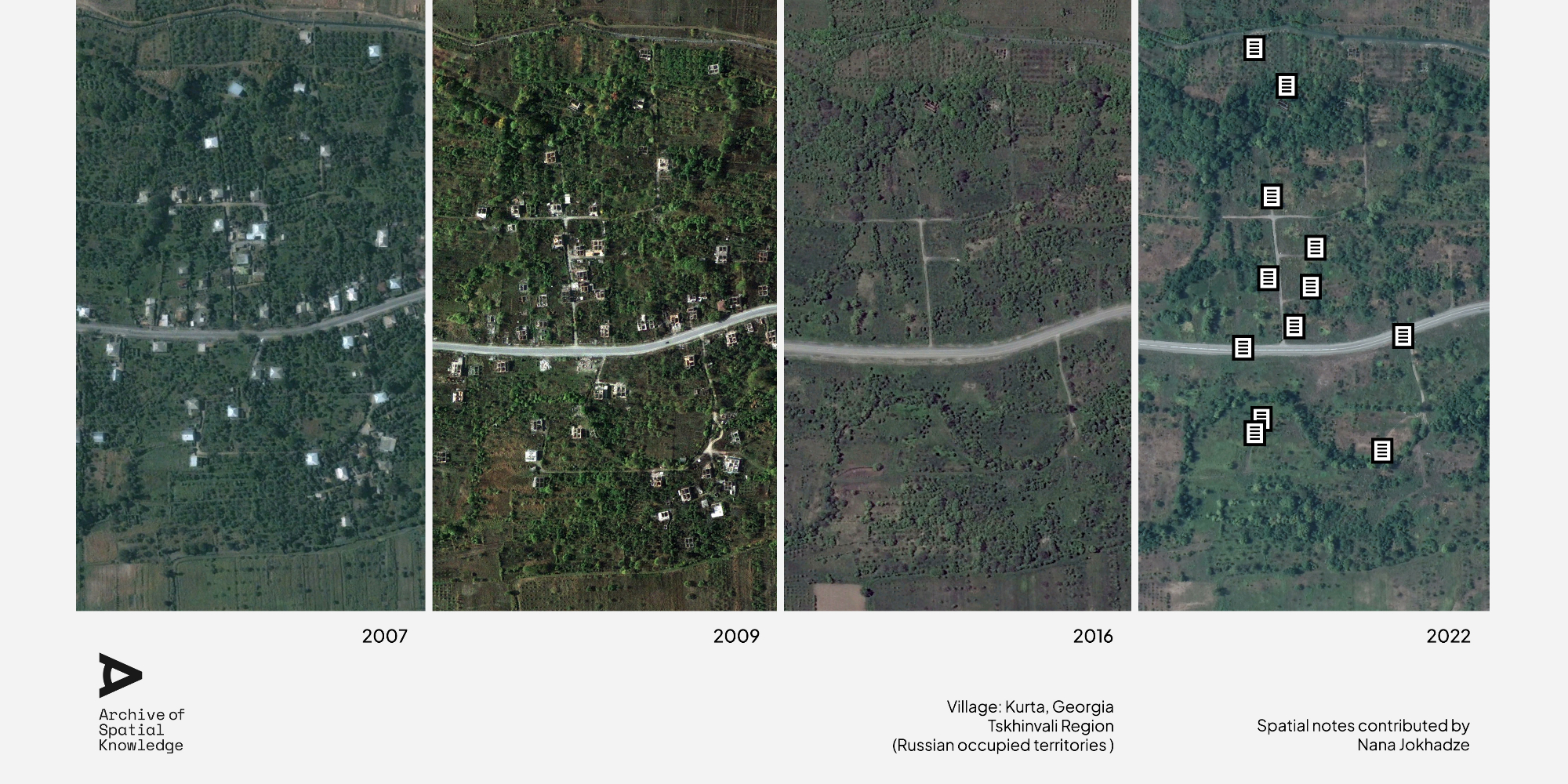
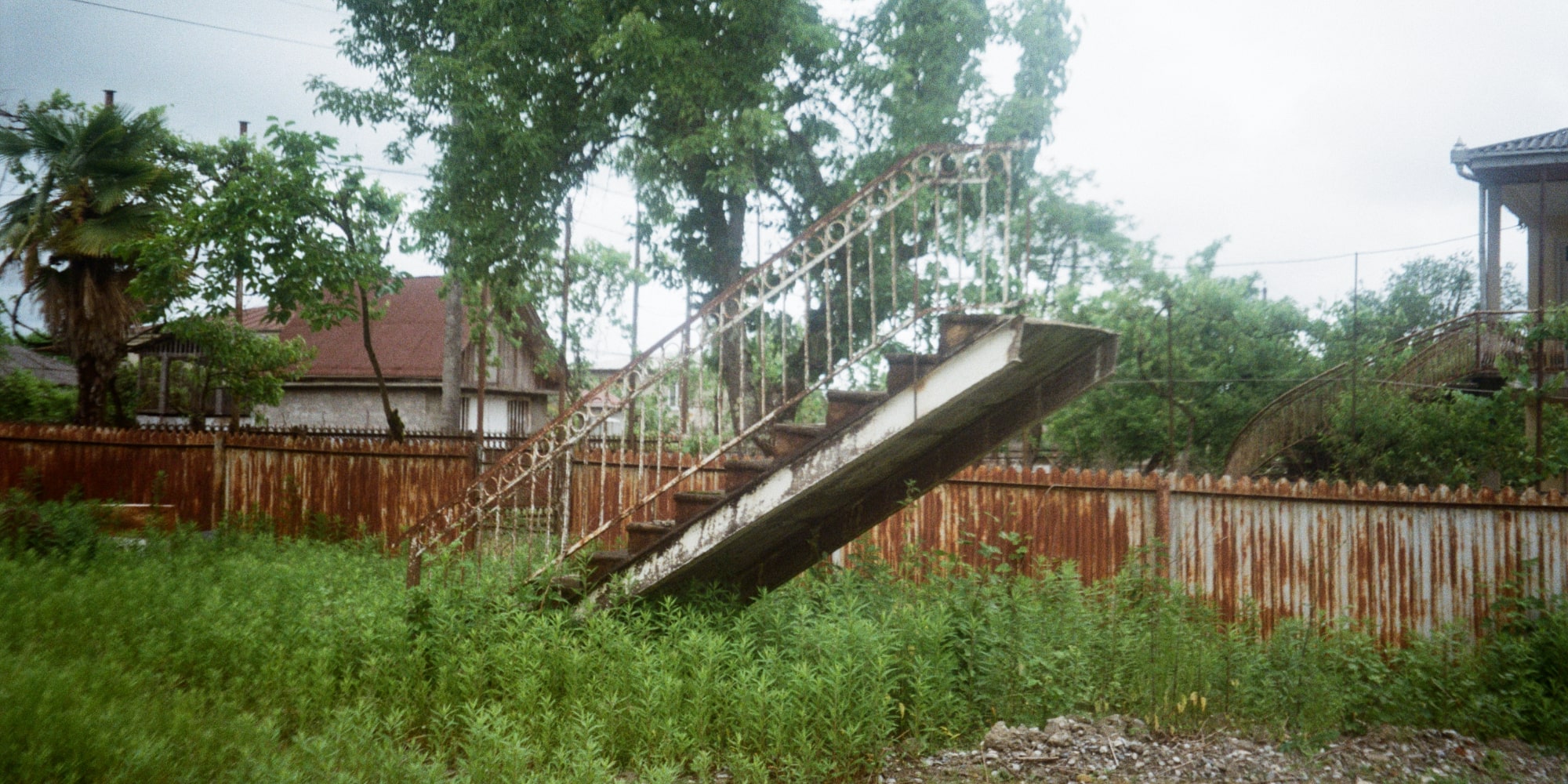
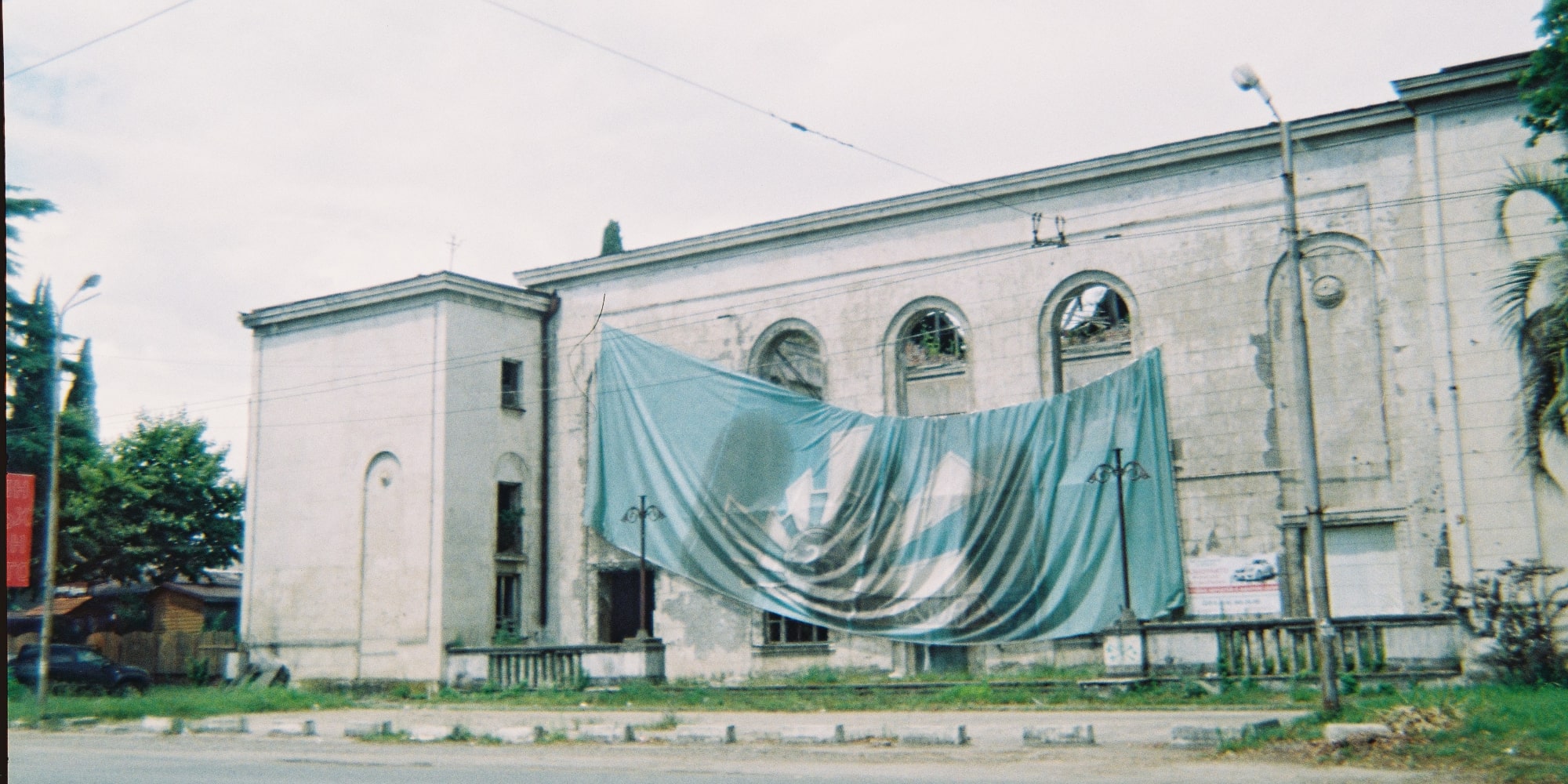
Laura Welzenbach: How do you now continue with these stories? What are your criteria for curating them?
Irakli Sabekia: I look for authentic voices and try to avoid narratives strongly influenced by political or cultural biases and agendas. Exposing the fact that this knowledge is erased from its original space is a political statement in itself. Among the contributors is a young person with no first-hand memory of the space she is describing. She acquired her knowledge through the memory of her parents. Another example: With the permission of the family, we are using the diary of a deceased person to reconstruct the memory of his hometown. In this way, the archive is also exploring various ways in which memory is acquired and passed on.
Laura Welzenbach: What were the reactions from the contributors when they learned about your project and your research?
Irakli Sabekia: The response to the requests for interviews and meetings is largely positive, even though the interviews are sometimes quite heavy for both parties. Spatial anomalies responsible for the erasing of memory have a long-lasting and deep impact on the communities they touch. I try to have conversations on the level where they cause the least harm to the people willing to contribute their memories.
Laura Welzenbach: The digital platform with the archive of stories will be accessible through an app and a website. What is your dream or wish what the archive will become one day?
Irakli Sabekia: In its first edition, the archive focuses on a specific area and conflicts in the Caucasian region. In it, we tried to assemble memories of individuals from diverse vantage points, to reconstruct fragments of the spatial knowledge that is being deliberately erased. However, the picture will never be complete, and many voices are missing. I hope that gradually the archive will find a way to host memories of more individuals from the occupied territories. In its further editions, I wish to see the archive explore other areas of the world where space is deliberately stripped of its memory.

The Romanian Podcast “Shared Experience Lab” invited Irakli and Laura for a short conversation. If you want to learn more about Irakli’s practice and his take on the role of technology in his work, find the podcast here: anchor.fm/qolony. “Shared Experience Lab” in the continuation of the Fusion:Talks project from 2021, looking to expand the theoretical points discussed during the conferences into a more applied area, through case studies and actual projects from Romania and abroad. The project is structured as a series of podcasts and discussion about transdisciplinary in art & science projects, with focus on their social, ethic or philosophical impact.
Laura Welzenbach: At the Ars Electronica Festival from September 7. – 11. this year you will show the digital archive as a physical art installation. What will visitors expect at the festival?
Irakli Sabekia: The attachment of memories to specific geographic locations, in a dimension protected from oppressive forces, is the main gesture in the work. For this reason, the project can be fully experienced in the locations which the stories are fixed to. While being in these places the archive allows the viewer to witness the disparity between the memory of the space and its current reality. At the festival, visitors will be introduced to the work that has been done on the archive so far. Through the installation the archive will allow its stories to unfold in the space of the exhibition and will invite the viewers to explore them from a safe and remote setting.
Laura Welzenbach: Irakli, thank you so much for your time. We are very much looking forward to seeing your installation at the festival.
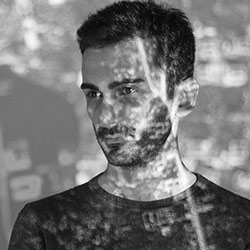
Irakli Sabekia is a Georgian designer and artistic researcher based in Amsterdam. A recent graduate of the Design Academy Eindhoven, he has a background in sciences and visual communication. His installations, interventions, and interactive experiences explore the human position in relation to artificial and natural systems, engaging with politics, society, and technology.

Laura Welzenbach produces and directs projects in art, technology and politics. As the Head of Ars Electronica Export, Laura creates experiences through connecting art and science. The international collaborations take shape through exhibitions, workshops and art science residencies. In the past she ran the artist residency program at Eyebeam in New York (2014-2017) and was executive manager of the sound:frame festival in Vienna (2010-2013). photo: theresa wey
This project was developed during the ArtScience Residency, enabled by the partnership of Ars Electronica and Deutsche Telekom and with the support of Sustainable AI Lab of the University Bonn.
